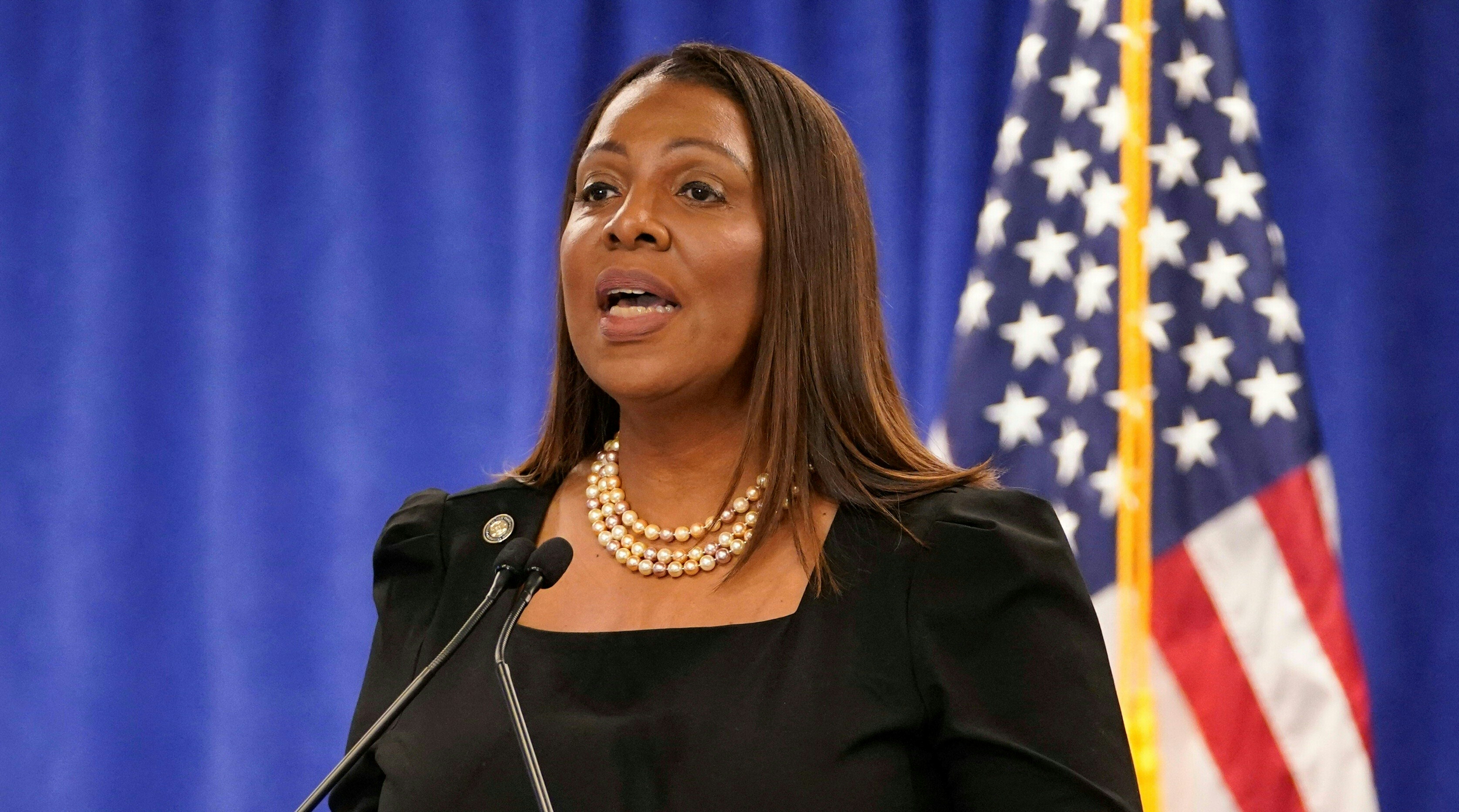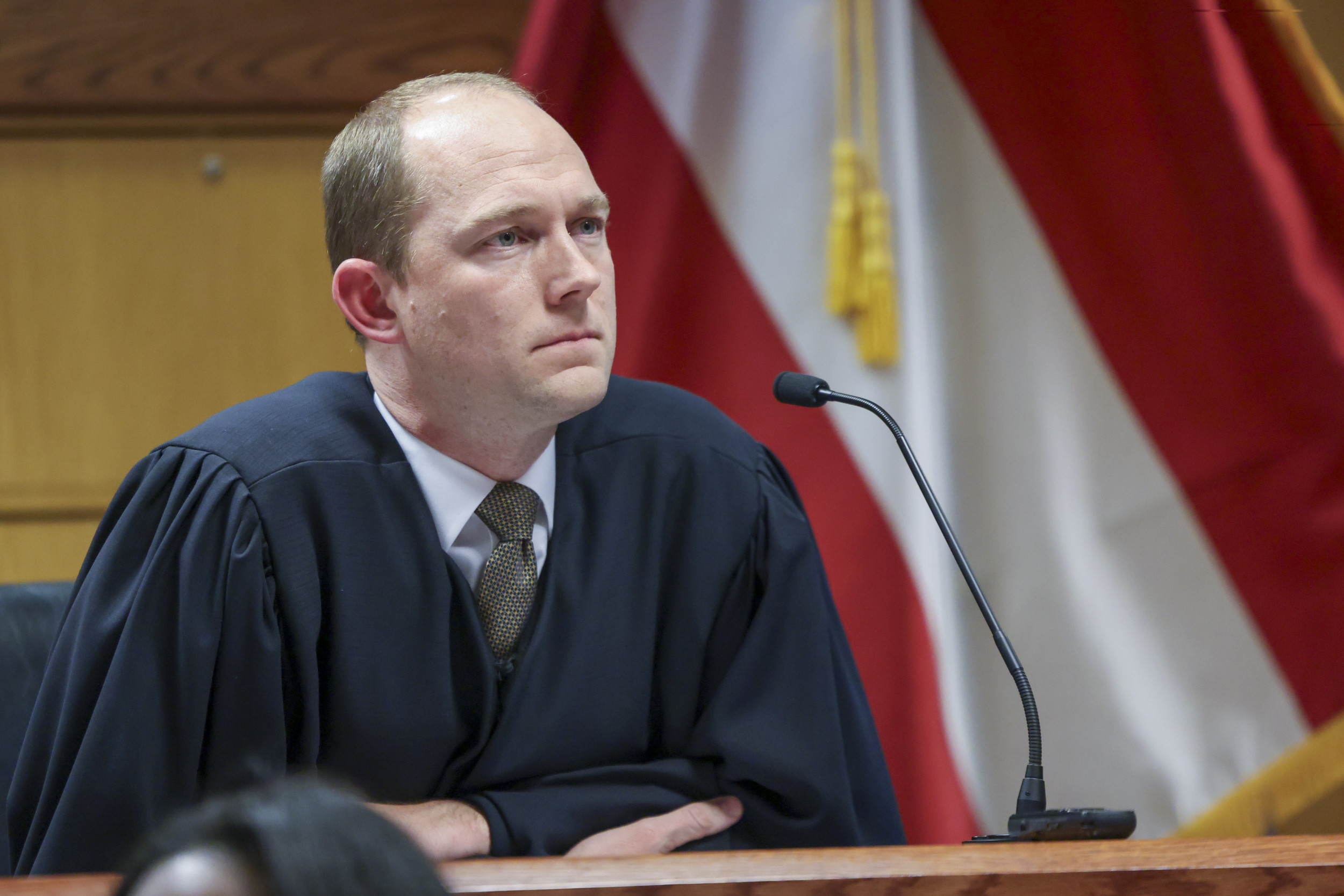At 4:30 a.m. on December 29, the White House lawyer in charge of handling the administration's response to the slew of investigations planned by the incoming Republican House majority fired off a warning shot in an email to the two GOP representatives expected to head the probes. They were demanding documents related to everything from the chaotic U.S. exit from Afghanistan to the migrant crisis at the border in the weeks after the midterm elections, and the Biden defense team wasn't having it. The language was lawyerly but firm: Call me after the new Congress is sworn in, when you actually have some authority.
At 5 a.m., the story appeared in the press.
The message was clear to both Republicans and the public, says Mark Tuohey, a veteran D.C. lawyer and congressional oversight expert: "The White House is not going to just roll over and comply."

Just the opposite, in fact. As House Republicans barrel down on President Joe Biden with alarming speed, launching aggressive new oversight investigations on a near-weekly basis in an all-out assault ahead of the 2024 presidential election, the White House is digging in for the biggest fight of Biden's half-century political career. Working behind the scenes to craft and execute the battle plan: a war room of lawyers and political strategists chosen by the president and his advisers for whom the pre-dawn email and press leak on documents was just an opening salvo.
Impeachment is “always on the table. If that’s where the facts lead, that’s where the facts lead.
Almost a year in the making, Biden began assembling his defense team months before the midterms, when it became clear Republicans would likely win back the House—long before the president was engulfed in the current, potentially explosive classified documents scandal. The team, as reflected in the December email, is pursuing a dual-track strategy. In public, White House officials insist they're willing to cooperate with legitimate GOP oversight demands. In private, attorneys drive a hard bargain over document and witness requests, seeking to limit the damage to Biden and preserve his political brand as a bipartisan consensus-builder. The end game: to paint Republicans as extreme, out-of-control partisans while portraying the White House as a bastion of steady, responsible leadership.
The showdown with Congress threatens to overshadow the rest of Biden's first term in office and loom over his expected bid for a second term. Republicans haven't ruled out impeachment, a worst-case scenario that would make Biden the second consecutive president to run for reelection while at risk of being impeached by the House.
"That's always on the table," Pennsylvania Republican Scott Perry, chairman of the conservative House Freedom Caucus, tells Newsweek in regard to impeaching Biden. Adds Perry, an ally of former President Donald Trump who helped try to overturn the results of the 2020 election, "If that's where the facts lead, that's where the facts lead."
The cumulative effect of these investigations could take Biden off the moral high ground he’s been on. That’s the thing that could do the most damage to him politically.
The number and scope of congressional inquiries into possible wrongdoing that Biden faces is staggering—Afghanistan, son Hunter Biden's business dealings, the origins of COVID, migration at the southwest border, the discovery of classified documents at his home and office and more. Beyond Congress, Biden is also under investigation by the Department of Justice for his handling of those classified records.
Biden is under so much scrutiny right now that White House officials and political advisers are clear-eyed about the potential fallout for a president who promised to reset the nation's moral compass after the Trump era. Their biggest concern isn't around any one probe—it's the sheer volume of investigations headed their way in the weeks and months to come, just as Biden embarks on a grueling reelection run at the unprecedented age of 80.
"The cumulative effect of some of these investigations could take Biden off the moral high ground he's been on, which distinguishes him from the former president," Ashley Etienne, a former senior Biden White House adviser who worked on his 2020 campaign, tells Newsweek. "That's the thing that could do the most damage to him politically. It's definitely going to keep the president and his top advisers up at night."
The Warriors
The Biden war room is less a single physical space than it is a network of legal and political advisers in the White House—working from offices spread across the West Wing and Eisenhower Executive Office Building—along with outside allies known for their crisis management skills and decades of experience doing battle with Congress.
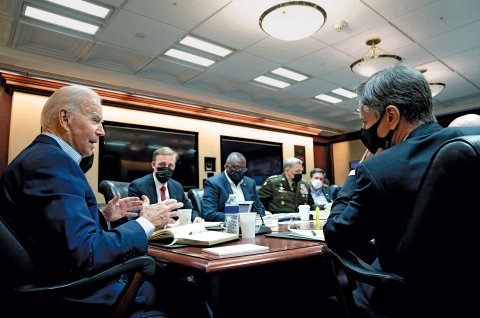
Biden and then-White House counsel Dana Remus started putting key figures in place last year, led by the appointment last May of Richard Sauber to direct the team's response to congressional oversight demands. Sauber, who was hired from his post as the Department of Veterans Affairs' general counsel, started his career with a seven-year stint as a federal prosecutor in the Department of Justice, where he made a name for himself by creating a task force to investigate procurement fraud in the military. He went on to have a successful private sector law career and is known in Washington legal circles as a tough, no-nonsense lawyer with an eye for detail and deep knowledge of the congressional oversight process.
"Sauber is the right choice for this," says Tuohey, who worked with Sauber at the Justice Department and served as Ken Starr's deputy in the Whitewater investigation that led to Bill Clinton's impeachment. "He understands the process, and he understands the political dimensions."
If Democrats have not learned the lesson that these hearings and accusations can be damaging and have a life that goes beyond the findings, then they weren’t paying attention in 2016.
Other key voices in the room include White House counsel Stuart Delery, who has taken on the role of responding to House Republican oversight requests alongside Sauber. Delery worked his way up through the ranks at DOJ in the Obama administration, serving as the assistant attorney general for the department's Civil Division and later as acting associate attorney general during former President Obama's last two years in office.
The team has continued expanding since Sauber and other early hires began laying the groundwork for Biden's defense. Russell Anello, a veteran of the Obama White House counsel's office, was hired late last year to help steer the day-to-day negotiations with House Republican lawyers. Anello has earned his bona fides as a tactical expert in congressional probes of a sitting president: He shifted to Biden's team from his job as the Democratic staff director for the House Oversight Committee, where he served as the panel's top lawyer in clashes with the Trump administration.
The attorneys facing off against House Republicans are working separately from the legal effort to respond to the Justice Department investigation, led by Bob Bauer, a former White House counsel to Obama. Biden tapped Bauer earlier this year to represent him as his personal attorney in the federal probe into the handling of classified documents found at Biden's Wilmington, Delaware, home and the office he used after stepping down as vice president. Bauer has already proven his skill in helping formulate responses to some of Biden's thorniest political problems: During the 2020 campaign, he was tapped to deal with a decades-old accusation of sexual assault against the candidate by a former staffer and the controversy around his son's laptop; then, in the aftermath of the election, he was the chief legal voice crafting the strategy in response to Trump's fraudulent claims of a rigged election.
It's not only lawyers in the war room. One of the president's senior advisers, longtime Democratic strategist Anita Dunn, is leading political strategy with an eye to how the investigations battle impacts Biden's standing with the public. Dunn, who is married to Bauer, also played a critical role in Biden's 2020 White House run, credited with helping to keep the campaign on message when Biden struggled at the outset of the primaries.

Outside the White House, allies are also working to coordinate the Democratic Party's response to the GOP's attacks against Biden. The Congressional Integrity Project, a pro-Biden group, is helping Democrats craft talking points aimed at rebutting Republican claims of corruption and failed policy. The group held a strategy session in January urging Democratic operatives to portray GOP lawmakers as "MAGA Republicans" bent on damaging Biden instead of focusing on policy proposals to help everyday Americans, according to sources familiar with the work.
One key contribution the organization will make to the war-room effort: The group plans to blanket vulnerable Republican districts in states like New York and California with mobile billboards and other ads, its founder Kyle Herrig tells Newsweek. It is also considering dispatching volunteers to battleground House districts to spread the message to voters that Biden's agenda is being stymied by politically motivated investigations.
The GOP's "ultimate goal is to damage the president as much as they can," Herrig says. "It's not to conduct legitimate oversight."
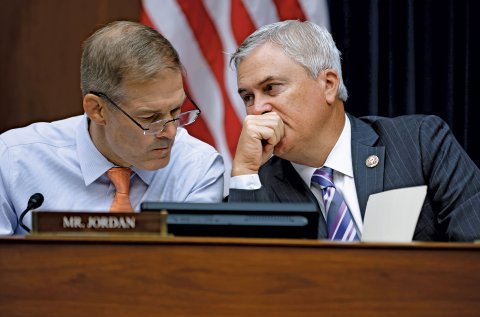
"Despite the very clear message in the midterms that independent and moderate Republican voters rejected ultra-MAGA candidates, the response now from House Republicans is to double and triple down on ultra-MAGA strategies," Jeffrey Peck, a former Biden Senate aide who is advising the Congressional Integrity Project, tells Newsweek. "If they want to self-destruct, I guess they'll self-destruct."
The messaging is mirrored by White House counsel spokesman Ian Sams, who has emerged as the war room's chief counterpuncher. Sams, a former spokesperson for Vice President Kamala Harris' 2020 presidential campaign, regularly holds calls with reporters to push back against Republican allegations, defends the president in frequent appearances on MSNBC and is a vocal critic of the GOP investigations on social media.
"These blatant, easily disprovable @HouseGOP lies are dizzying," Sams wrote on Twitter in a typical post in early February in a real-time response to a House Oversight Committee hearing on the administration's border policies.
"House Republicans should join the president to focus on the issues critically important to the American people and improving their lives, like tackling inflation, bringing down costs and creating jobs, not make political stunts their top priority," Sams tells Newsweek, echoing a familiar refrain from Biden officials and Democratic supporters. "While the Biden Administration is prepared to work in good faith with Congress, we expect Congress to work in good faith with us, too, and we hope they will work with the president instead of wasting time and resources attacking him."
The Battle Plan
Lawyers inside the war room are all following the same playbook, insisting that they'll comply with reasonable oversight requests while pushing back on specific demands. The approach reflects Biden's long-standing respect for congressional authority, according to several people familiar with the president's thinking on the matter, as well as the conviction that Republicans should be called out for partisan attacks.
"The president will do everything by the book because that's at the core of his whole philosophy and way of looking at things," says one Biden ally with firsthand knowledge of the president's thinking about the investigations, but who isn't authorized to speak about it. At the same time, the person says, the White House is "realistic, and the reality is there is no bottom to the tactics that a number of these House Republicans will pursue."
Sauber set the tone early on when he rejected those initial oversight requests from incoming House Oversight Chair James Comer and Judiciary Chair Jim Jordan in the early-morning email in late December. If faced with "similar or other requests in the 118th Congress, we will review and respond to them in good faith, consistent with the needs and obligations of both branches," Sauber wrote. "We expect the new Congress will undertake its oversight responsibilities in the same spirit of good faith."
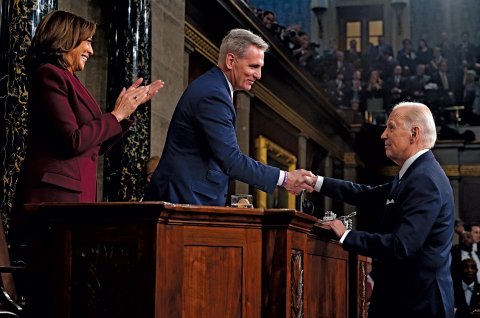
Still, the episode helped cement the thorny relationship between Biden's team and his opponents on Capitol Hill, who were furious to receive Sauber's pre-dawn broadside just 30 minutes before a news story about it appeared. "If they're signaling right off the gate that they're not being cooperative, that's not a good sign," a House Republican source with knowledge of the exchange tells Newsweek.
"Under one-party Democrat control, the Biden Administration operated without any oversight from Congress," Comer said in a statement to Newsweek. "Now that the Republicans have the gavel and real oversight and accountability are here, Biden's White House is trying to do anything but provide transparency to the American people."
White House officials dismiss the GOP outrage as political theater. One adviser working on Biden's defense noted that Republicans have given the White House just as little warning before firing off demands and then leaking them to the media. The official noted that Comer sent the Department of Homeland Security one letter with document requests at 8:12 a.m. on January 19, less than one hour before it was made public at 9 a.m.
So far, the war-room strategy appears to be paying off, forcing Republicans to make some concessions as their oversight hearings get underway. In an initial showdown over witnesses, Comer played hardball, demanding that four Department of Homeland Security officials testify before his committee at a hearing in early February on Biden's border policies and threatening to issue subpoenas if they did not comply. DHS agreed to work with Comer but worked out a compromise, offering only two officials to testify.
Biden's legal team is using a similar approach in response to other probes. In response to a request for information on Biden's handling of classified documents, Delery told Comer in a letter on January 23 that the administration would try to "work cooperatively with Congress." But Delery also raised the "critical need to protect the integrity and independence of law enforcement investigations," sending the clear message that Comer's oversight efforts won't take precedence over the Justice Department probe.
The White House has been less willing to budge, though, when it comes to investigations into Hunter Biden's business activities. The GOP allegations center on the president's son's business dealings with Ukrainian and Chinese energy firms—activities that made Hunter Biden and his company roughly $11 million between 2013 and 2018, according to an NBC News analysis. Republicans have long claimed Hunter Biden's business work influenced his father's foreign policy decisions when the elder Biden served as vice president.
No evidence has emerged to support the claim, despite multiple Senate investigations into the matter. Nevertheless, Comer has alleged Hunter Biden's business activities are part of an ongoing "influence operation" that includes the president's brother and reaches all the way to the highest levels of the U.S. government.
Alarm bells went off in the Biden campaign when Republicans raised corruption allegations against Hunter Biden during the 2020 race, several sources said. But the concern subsided with time, and now Biden's advisers have adopted the campaign's strategy of ignoring the Hunter Biden controversy as much as possible.
"There's no there there," says one person familiar with the White House thinking on the issue, who asked not to be named. Still, it won't be easy for the president to watch from afar as Republicans drag his son through the mud, several sources say. Biden's loyalty to his son "could potentially be a blind spot for the president," Basil Smikle, a Democratic strategist, tells Newsweek, but there are "people in the room that are giving him good advice about the distance he should keep."
What Victory—or Failure—Portends
How successful the war-room effort is in limiting the scope of the investigations into the president and convincing the American public that the inquiries are politically motivated has broad implications—not just for the remaining two years of Biden's term but also for his 2024 campaign. Biden's reelection prospects were already cloudy before Republicans launched their oversight efforts, thanks to low approval ratings (currently hovering around 42 percent) and lingering questions over his age (he's the first octogenarian in the Oval Office and would be 86 at the end of a second term). Now the timing of the congressional investigations, as well as the Justice Department probe into his handling of classified documents, could further complicate his path to another four years in the White House.
The Justice Department—which is simultaneously investigating Trump's handling of classified documents and effort to overturn the 2020 election—is also under "pressure to investigate it expeditiously," Rod Rosenstein, who served as the second-ranking DOJ official under Trump, tells Newsweek of the Biden probe. The president has said he was unaware of the existence of classified documents at his home and former office. If that's true, "[Biden] has nothing to worry about," says Rosenstein, who oversaw the special counsel investigation into ties between the 2016 Trump campaign and Russia. But, Rosenstein adds, "if he did know, there's potential for a criminal case."
In Congress, House Republicans could choose to move quickly and wrap up their oversight work this year, before primary voting starts in early 2024. Or they could choose to prolong the investigations, so they overlap with the primaries and general election. A House Republican source with knowledge of the GOP's plans tells Newsweek the investigations will take months to complete. "We don't fully know how long it's going to take until we know what cooperation we're going to get" from the White House, the source says.
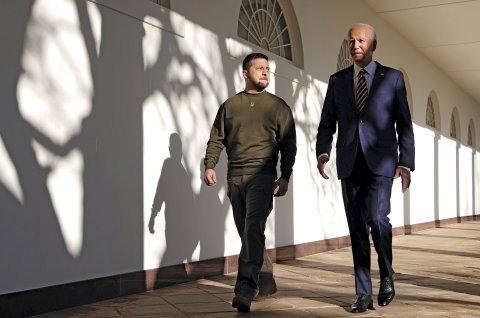
However long it takes, the battle will be bruising for Biden. In their most optimistic scenario, White House advisers see a potential political upside if Republicans focus on investigating the president instead of using their new power to define their policy agenda. If the showdown on one or more of the inquiries leads to impeachment, the contrast between Biden's focus on governing and the Republicans' political attacks would only be sharper, Democratic sources say, and could motivate voters on the left to rally around the president.
Whether sentiment will play out that way is a big unknown. A Biden impeachment isn't a given. Speaker Kevin McCarthy may be reluctant to go there since he controls a slim majority, and losing an impeachment vote would be humiliating. But as the chaotic race for House speaker showed, McCarthy apparently has a bottomless capacity to withstand humiliation.
Given the concessions he had to make to far-right Republicans to get the job, he may not have much of a choice in the matter if the most extreme members of his caucus decide that impeachment is warranted—despite knowing that Biden would never be convicted by the Democratic-controlled Senate. In his interview with Newsweek, Perry of the conservative House Freedom Caucus says McCarthy told him that Comer and Jordan have "carte blanche to do investigations and oversight."
It is tempting to compare Biden's predicament to that of his predecessor, but Hillary Clinton may be a more instructive example for Democrats surveying the 2024 race than Donald Trump. In the run-up to her 2016 presidential campaign, Clinton became engulfed in scandals over her use of a private email server as secretary of state and a deadly terrorist attack in Benghazi, Libya. Democrats mistakenly assumed voters would see the House Republican investigation into Benghazi as partisan overreach intended to damage Clinton's White House ambitions. Fast forward to Election Day 2016, and the rest is history.
The lawyers and strategists guiding the Biden response to the investigations coming his way would do well to remember the Clinton example, political analysts say. "If Democrats have not learned the lesson that these hearings and accusations can be damaging and have a life that goes beyond the findings," Princeton University historian Julian Zelizer tells Newsweek, "then they weren't paying attention in 2016."
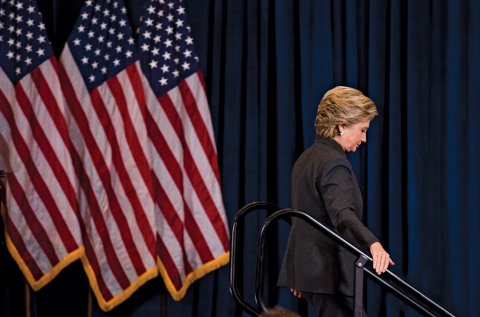
In addition to offering a cautionary tale for the White House, the Clinton case shows how much the rules of political warfare have changed in the past decade. McCarthy admitted during the Benghazi investigations that House Republicans' true aim was to damage Clinton's presidential campaign. At the time, the comment was viewed as a boneheaded "gaffe" and helped tank McCarthy's first bid for speaker in 2015. The uproar it caused at the time feels quaint by recent standards.
Last year—months before Republicans won back control of the House—Jordan told a high-profile conference of conservative activists that the GOP's planned investigations into Biden "will help frame up the 2024 race, when I hope, and I think, President Trump is going to run again, and we need to make sure that he wins." Such comments rarely draw notice anymore—naked partisan attacks are seen as simply par for the course.
"One of the symptoms of things coming apart at the seams is getting into what game theorists call a tit-for-tat of equilibrium, where nobody wants to be a sucker," Louis Michael Seidman, a constitutional law scholar at Georgetown University, tells Newsweek. "So, the Democrats impeach Trump, and now the Republicans aren't going to let them get away with it."
During the first two centuries of American history, Seidman adds, there was a shared "sense that impeachment is a pretty serious thing that we don't want to do casually or often. But norms change, and maybe we're on the verge of this norm breaking down."
Coming so soon after Democrats impeached Trump twice in a 13-month span, the early Republican talk of impeachment is a sign the division between the parties has hit a new low, according to Zelizer. If hyper-partisan investigations of the presidency become commonplace, he argues, "it has the potential to be very damaging" to American democracy. Although Republicans don't have the votes in the Democratic-controlled Senate to convict Biden, that may be beside the point. The Republican game plan is "scorched earth," Zelizer says. "If you're doing that, the specifics don't matter."
That's a critical element for the White House to keep in mind, Biden allies say. "The incentive structure is off in politics right now, and that's what's going to make this a crazier oversight cycle than what we've seen in the past," says Etienne, the Biden and Obama White House veteran, who also served as a senior adviser to former Speaker Nancy Pelosi. Republicans will use the moment "to raise money, get on Fox News, double their likes on social media, all the things that's driving so many in that caucus, rather than legitimate investigations that will improve the lives of the American people. They're going to be as salacious as they possibly can be."
Publicly at least, Biden appears to be leaving the defensive maneuvering to his war-room team. If he is worried about Republican revenge, or his own strategy for survival, or his reelection prospects, or even the state of democracy, he doesn't let on. In the weeks since the classified documents scandal broke and House Republicans stepped up their investigations, Biden has met with foreign leaders in the Oval Office and kept up his focus on Ukraine. He has surveyed storm damage in California, promoted his economic agenda at a union hall in Virginia and delivered a State of the Union address.
In late January, he appeared to be in good spirits while hosting a conference of U.S. mayors at the White House. In a long, meandering address that sounded much like a stump speech, the president touted his administration's accomplishments. Biden was in his element, pacing back and forth across a stage in the East Room, cracking mayor jokes and trying on various regional accents for size.
He mentioned his deceased son Beau, referring to him, as he often does, as "the guy who should be standing here, if there was any Biden who was going to be president." There was no mention of Hunter, or the many investigations he's facing, or the war- room defense underway behind the scenes. Instead, Biden expressed his belief in bipartisanship—even as Republicans on the other end of Pennsylvania Avenue plot to blow up his presidency.

About the writer
Daniel Bush is a White House Correspondent for Newsweek. He reports on President Biden, national politics and foreign affairs. Biden ... Read more











